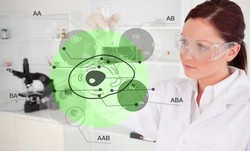Epigenetics unveiled
Epigenetics research includes the study of how patterns of gene expression defined during development can be maintained and passed on to progeny cells. Moreover, how gene expression can change during cellular differentiation and how genes respond to environmental factors across the lifespan of an organism are important factors. Increasing evidence links epigenetic mechanisms to a variety of diseases and disorders, including autoimmune diseases and neurodegenerative disorders as well as environmental cues and nutrition that heavily influence epigenetic processes. In addition, epigenetic alterations have been identified in numerous cancers, in diabetes and even in some infectious diseases. As a result, epigenetic research has identified a plethora of new therapeutic targets, giving promise to the development of novel therapeutic interventions. Following the identification of key epigenetic regulators, there is a need to understand their dynamic and complex functional relationships on an organismal level. With this in mind, the EU-funded EPIGENESYS(opens in new window) (Epigenetics towards systems biology) network of excellence set out to establish a framework for developing and sharing tools, resources and knowledge so as to integrate epigenetics into systems biology, a discipline that looks at the dynamic interplays of various factors at the same time, integrating state-of-the art computational analyses. Researchers studied the interactions of epigenetic regulators with chromatin, the packaged form of DNA in cells, and how epigenetic modifications are established, maintained, and erased. They found cases, where histone post-translational modifications on nucleosomes, the core-packaging unit of chromatin, can act as heritable epigenetic marks. Additionally, the network of excellence was particularly interested in elucidating how epigenetic mechanisms become deregulated in disease and to mathematically model the signalling events in normal and perturbed situations. They found that certain epigenetic marks were highly dynamic across the ageing process, and played a critical role in regulating gene expression across the lifespan. By applying high-throughput systems biology approaches, EPIGENESYS scientists successfully deciphered key aspects of the crosstalk between genome and epigenome in various model organisms. They also employed data sets and tools to model genome-wide epigenetic states and regulatory networks. Since positive and negative regulation of transcription requires the remodelling of chromatin via histone and DNA modifications, the project consortium investigated how the environment, stress, metabolic status and growth factors signal to the epigenome to induce new programmes of gene expression. Overall, the EPIGENESYS project offered unprecedented fundamental knowledge on the role of epigenetic modifications in health and disease. Since chromatin structure influences the accessibility of various anti-cancer drugs, understanding its dynamics is crucial for the choice of treatment and understanding mechanisms leading to resistance mechanisms. In addition, new biomarkers for drug response and resistance and for the classification of cancer subtypes have been identified, which have great potential to be translated for clinical uses.







